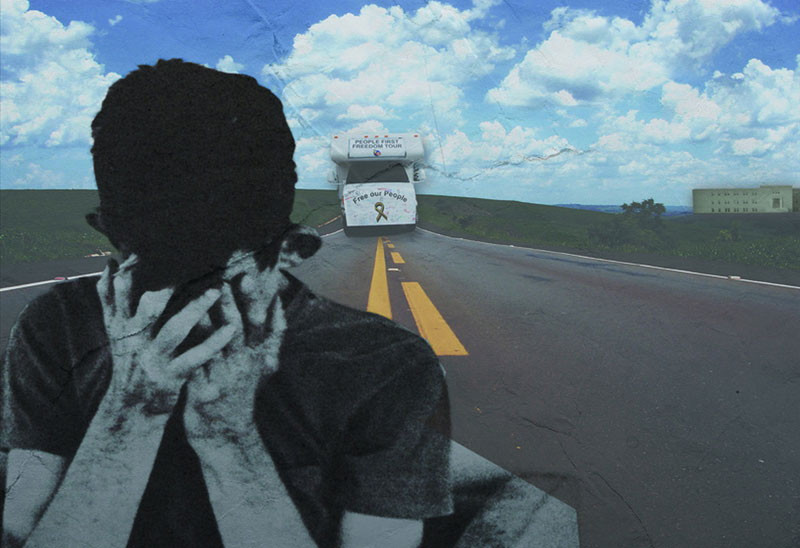Documentary about Canadian institutional survivors sure to impact viewers
In 1967, a documentary concerning the patients of a state hospital for the criminally insane in Massachusetts and the inhuman treatment they received, entitled Titicut Follies, was banned in the United States. The film had a major impact on Milos Forman’s Oscar winning film One Flew Over the Cuckoo’s Nest. Both these films have stood as shameful reminders of how society has dealt with those with mental and intellectual disabilities in the past.
However, The Freedom Tour, a 2007 documentary showing this week at the Cinematheque, aims to enlighten people about the fact that these institutions – and the atrocities perpetrated within them – are not necessarily a thing of the past.
The film concerns an awareness group as they travel across the prairie provinces in an RV to gather stories from institution survivors and to protest against the continued use of these facilities.
The group involved, People First of Canada (who also act as filmmakers), is an organization run by persons who have been labeled intellectually disabled. Their primary goal: to abolish the use of institutions in Canada and to see those who were institutionalized become functioning members of a community.
The opening scene finds David, a middle-aged man who spent most of his life in the Manitoba Development Centre, describing the inhumane treatment he suffered. His speech impediment makes him difficult to understand, and the use of subtitles makes one think that perhaps he’s speaking another language. He’s not. It’s English, and his difficulty in communicating perfectly accents his plight and the plight of all those who have suffered the same fate: their entire lives have been a series of muffled cries.
Shot on digital cameras and edited together quickly, the film is an obviously low budget affair. Still, this lack of aestheticism provides an unsophisticated beauty that reminds us that this is truly a labour of love, and a cry for change from a group of people who have been deeply wronged.
This is not a million dollar project designed to propagandize; the film’s greatest asset is the honest and heartbreaking accounts by the survivors who share their harrowing stories without guile or sensation.
Though it’s oftentimes difficult to listen to the shattering stories, especially when the voices that share them are so fully innocent of any offence that would deserve such treatment, their words deserve to be heard; and once heard, they will not soon be forgotten.
Published in Volume 63, Number 16 of The Uniter (January 15, 2009)







